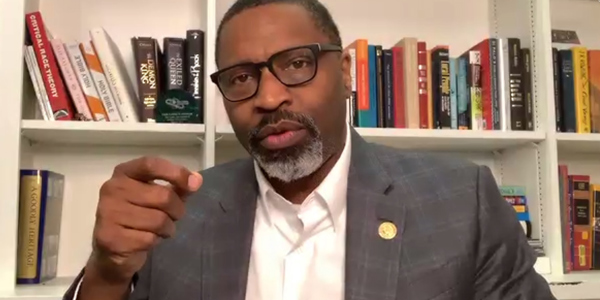Regulators and utility experts on Monday did not shy away from discussing 2020’s pandemic and racial justice zeitgeist.
Panels and keynote addresses on marginalized communities and pandemic-related economic pressures dominated the opening day of the National Association of Regulatory Utility Commissioners’ virtual Summer Policy Summit.
Edison Electric Institute President Tom Kuhn applauded NARUC for forming last month a task force on emergency preparedness, recovery and resiliency. The task force will examine mounting extreme weather events and natural disasters and share best practices, funding opportunities, resources and collaborative efforts. The group includes a special subcommittee to examine the national response to COVID-19.
“It’s going to be so very important to look at the lessons from this pandemic and apply them to the next one,” Kuhn said during the summit’s first panel on July 20.
Several panelists congratulated utilities and regulators on maintaining reliable electric service as normal use patterns were thrown out the window when people confined themselves to their homes.
“Our homes are our offices, schools, gymnasiums, everything,” said American Gas Association CEO Karen Harbert.
But four months into the pandemic, uncertainty still abounds. Multiple panelists predicted hardships ahead.
“We’ve never seen anything like this,” said National Association of State Utility Consumer Advocates Executive Director David Springe. Whole industries are on pause and countless consumers are already unable to pay utility bills.
“It’s a sea change, I think, in how we operate,” he said.
Springe recommended new protections for low-income customers for water and broadband services, in addition to existing electricity protections.
“I feel like we survived the initial volley, but the big battles are in the months ahead,” Springe said, noting that the weekly $600 federal boost in unemployment benefits and moratoriums on utility shutoffs will soon be expiring. ” … There are just simply going to be customers who struggle, customers who aren’t going to be there anymore.”
Springe said regulators should keep costs as low as possible to “best manage the acrimony that is surely in our future.”
“Customers are not an endless font of wealth,” he said. “It’s not in anyone’s interests to go through a period where we turn people off.” Springe said utilities must introduce new rate structures, grace periods and income-based payment programs for residential and some commercial customers.
Springe also told regulatory staff that utilities themselves may require some funding to “minimize the gap between prudently incurred costs and level of revenue.”
Above all, the focus should be on keeping people in their homes while the pandemic runs its course, Springe said. He said high unpaid utility bills in the middle of a pandemic are a psychological drain, especially on communities of color.
Despite that, NARUC President and Mississippi Public Service Commissioner Brandon Presley said a federal moratorium on utility shutoffs remains unnecessary and a state-by-state approach is best.
“States have been a great laboratory in this,” Presley said, adding that several states have struck a good balance between protecting consumers and keeping services reliable.
“When we look ahead to when these moratoriums end, our research indicates that the [energy bill] burdens could reach tens of billions of dollars and affect tens of millions of customers,” Melanie Santiago-Mosier, director of Vote Solar’s access and equity program, said in a separate panel on ratepayer-funded clean energy programs.
Santiago-Mosier said she believes it’s possible to continue into the future of clean and renewable resources while shoring up the faltering economy.
“We know we need to be responsive to the economic challenges that COVID-19 is presenting,” she said.
Nicor/Southern Co. Gas Vice President of External Affairs Lewis Binswanger said some clean energy programs are simply going to have to be subsidized by the ratepayers who can afford them.
“The wealthier customers have taken advantage of lower-cost energy for years. And the low-income customers feel like they’ve been abandoned,” he said.
NAACP CEO Derrick Johnson, delivering a keynote address, said regulators are more important than ever in the pandemic. But he also said regulatory bodies, utilities and co-ops often lack diversity and said ratepayers need an industry that is “truly representative of constituents.”
“There is no economic development where there is no power,” Johnson said. ” … Who will speak for those that cannot speak for themselves? That’s the role of the regulators.”
He cautioned regulators to not just “carry messages” for companies whose chief purpose is maximizing profits. “Who will speak for the regular consumer who lacks the institutional knowledge?”







